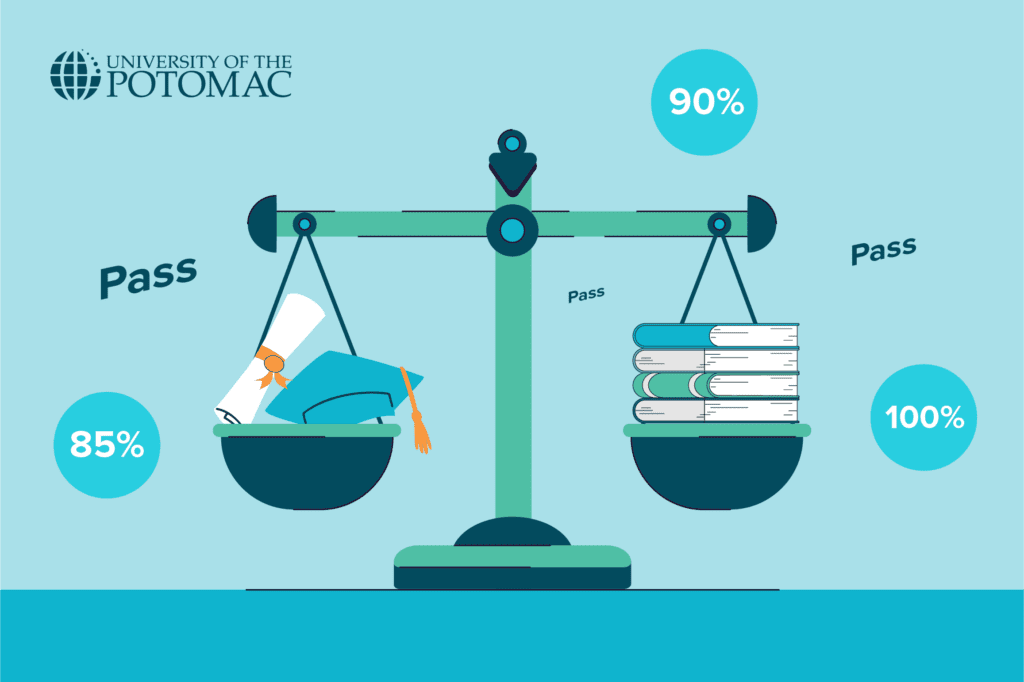

From the moment you step onto campus, as a first-year student or a senior, you must be mindful of the number of classes you enroll in, the credit hours those classes offer, and how these accumulate toward your final graduation requirements. Because every class you take in college is like a building block, carefully constructed to help you reach the ultimate goal of graduation. Keeping track of these details can appear daunting, but they are crucial for ensuring that you meet all the academic criteria set by your institution. So, how many credits to graduate college? Let’s start by clarifying what college credits entail and then explore credit requirements at different degree levels.
Credit hours represent the numeric academic value assigned to a particular course, providing a means to assess the relative difficulty and time commitment associated with different classes. Typically, one credit hour equates to one hour of traditional class instruction per week over a semester. However, this measure extends beyond classroom hours to include additional time required for readings, assignments such as research papers, and studying. For instance, a standard three-credit-hour course generally demands three hours of weekly in-class attendance, complemented by extra hours of independent study. In essence, credit hours reflect the academic workload and depth of learning expected from a course. Credits help quantify the amount of time and effort students are expected to invest in their coursework, ensuring consistency in academic expectations across institutions. This way, college credits are crucial for tracking progress toward degree completion. Institutions are permitted to consider various delivery methods, academic calendars, measurements of student work, disciplines, and degree levels when determining the work associated with a credit hour. They must equate their learning experiences with semester or quarter credit hours using practices standard to higher education institutions, justify program lengths compared to similar accredited programs, and justify program-specific tuition in terms of costs, length, and objectives.
The typical credit requirements for earning an associate degree involve completing around 60 credits. This requirement can vary slightly depending on the institution and specific program. For full-time students, the typical commitment is 12-15 credit hours per semester, enabling them to complete their degree in about two to two and a half years. On the other hand, part-time students who take fewer than 12 credit hours per semester can expect their studies to extend to 48 months or more, providing a more flexible study option. An associate degree program typically includes a mix of general education, major-specific, and elective courses. General education courses usually amount to about 20-30 credits, major-specific courses often require around 20-25 credits, whereas elective courses typically comprise the remaining 10-15 credits. This balanced distribution ensures students receive a well-rounded education while gaining specialized knowledge in their chosen area.

Bachelor’s degrees typically require the completion of around 120 credits. These credits are also divided among core or general education courses, major-specific courses, and electives.
A bachelor’s degree program’s core or general education requirements provide students with a broad educational foundation. These courses ensure that students develop essential skills and a well-rounded knowledge base, critical for personal and professional success. Typically, fulfilling these requirements involves completing around 30-40 credits. Common core courses span various academic fields, including English composition, mathematics, natural sciences, social sciences, and humanities. For example, students might take literature, biology, psychology, and history classes. These courses help develop critical thinking, communication, analytical, and quantitative skills, which are fundamental regardless of a student’s major.
Major-specific coursework is crucial for gaining in-depth knowledge and expertise in a chosen field. This component of a bachelor’s degree usually requires 40-60 credits, depending on the program and institution. Major courses focus on specialized topics and advanced concepts relevant to the field, preparing students for careers or further academic pursuits. Within these credit requirements, students can often choose from various electives or concentrations that allow specialization. For example, a business major might focus on finance, marketing, or management, tailoring their education to specific career goals. This structured yet flexible approach ensures comprehensive understanding while enabling students to pursue their unique interests within the discipline.
Elective courses play a significant role in a bachelor’s degree program by offering students opportunities to explore diverse subjects, develop additional skills, and engage in interdisciplinary studies. Typically, elective courses account for around 20-30 credits. Students can choose electives that align with their academic and career interests, or they might select courses that allow them to explore new areas of curiosity. Strategically selecting electives can enhance students’ skill sets, making them more versatile and competitive in the job market. For instance, a computer science student might take graphic design or business administration electives to broaden their expertise and career options.
To graduate college with a master’s degree, students typically need to complete between 30 and 60 credits, depending on the program’s length, intensity, and area of specialization. These credits are distributed among core courses that provide foundational knowledge, specialized electives that allow for deeper exploration within the field, and a capstone project or thesis demonstrating mastery of the subject matter. The exact number of credits to graduate college varies significantly by institution and academic discipline. For instance, most master’s degree programs at Potomac require around 36 total credits. These programs are designed to be intensive yet manageable, allowing students to gain advanced expertise within a relatively short time frame. On the other hand, some programs at other institutions might demand a higher credit load, reflecting the curriculum’s extensive nature and the specific requirements of the field.